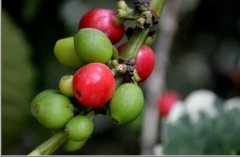Will coffee increase the risk of cancer? New discoveries in genetic research

Professional coffee knowledge exchange more coffee bean information please follow the coffee workshop (Wechat official account cafe_style)
The Kunzhou team used a genetic technique to assess whether coffee increases the risk of cancer and described it as a very effective method.
According to the Australian Broadcasting Corporation, Associate Professor Stuart MacGregor, a member of the research team, said the results of the study were clear.
He said: "the use of genetic techniques to assess whether coffee increases the risk of cancer is a very effective method. And we have shown in this way that drinking coffee does not affect your risk. "
"genes don't lie," he added. "
There was no link between drinking coffee every day and eventually developing cancer, the study found.
The QIMR Berghofer Medical Research Center in Kunzhou analyzed the data of more than 300000 people using the Mendelian Randomization method (Mendelian randomization) and data from previous international observational studies. Data on coffee drinking habits were provided by the participants themselves. Mendelian randomization is a genetic technique that observes the causal response of a target disease by changing the external conditions of genes with known functions. The results have been published in the International Journal of Epidemiology.
In the past, many animal tests have confirmed that coffee contains both carcinogenic substances and antioxidants. The health benefits of coffee have long been the subject of heated debate between the scientific community and the medical community.
Jue-Sheng Ong, the lead researcher in the study, was surprised by the results, pointing out that coffee has always been thought to be a choice between health benefits and an increased risk of cancer, but this is clearly not the case.
The world consumes about 2 billion cups of coffee a day. For coffee, which contains a possible carcinogen, acrylamide, which is also found in fried or baked starchy foods, there have been lawsuits in the United States in the past about whether coffee shops need to write warnings on coffee cups.
QIMR Berghofer researchers think their research may have an impact on public health around the world. However, Associate Professor McGregor believes that government policy does not need to be affected.
At the very least, the findings reassure coffee lovers to drink coffee.
END
Important Notice :
前街咖啡 FrontStreet Coffee has moved to new addredd:
FrontStreet Coffee Address: 315,Donghua East Road,GuangZhou
Tel:020 38364473
- Prev

Is drinking coffee addictive? How many cups of coffee do you drink every day? Three major misunderstandings are broken at once.
Professional coffee knowledge exchange more coffee bean information Please pay attention to coffee workshop (Wechat official account cafe_style) Coffee is one of the daily necessities for many people, but how many cups of coffee should be drunk every day in order not to exceed the amount has always been the focus of public attention. in this regard, dietitian Lin Shihang recently pointed out in the Food and Drug Administration's Drug Food Safety News that as long as daily caffeine
- Next

What is the full name of soe? what is the difference between single SOE coffee beans and Italian mixed beans?
Professional coffee knowledge exchange more coffee bean information please follow the coffee workshop (Wechat official account cafe_style) first explain that SOE and mixed beans refer to coffee beans made of different coffee beans, which generally refer to coffee beans from different places, because of the characteristics of each coffee bean.
Related
- Unexpected! Ruixing Telunsu lattes use a smoothie machine to foam milk?!
- % Arabia's first store in Henan opens into the village?! Netizen: Thought it was P's
- Does an authentic standard mocha coffee recipe use chocolate sauce or powder? Mocha Latte/Dirty Coffee/Salty Mocha Coffee Recipe Share!
- What is the difference between Vietnam egg coffee and Norway egg coffee? Hand-brewed single product coffee filter paper filter cloth filter flat solution!
- What is the difference between sun-cured and honey-treated coffee? What are the differences in the flavor characteristics of sun-honey coffee?
- How to make Italian latte! How much milk does a standard latte use/what should the ratio of coffee to milk be?
- How to make butter American/butter latte/butter Dirty coffee? Is hand-brewed coffee good with butter?
- Is Dirty the cold version of Australian White? What is the difference between dirty coffee/decent coffee and Australian white espresso?
- Relationship between brewing time and coffee extraction parameters How to make the brewing time fall to 2 minutes?
- Got entangled?! Lucky opens a new store, Mixue Ice City, and pursues it as a neighbor!

